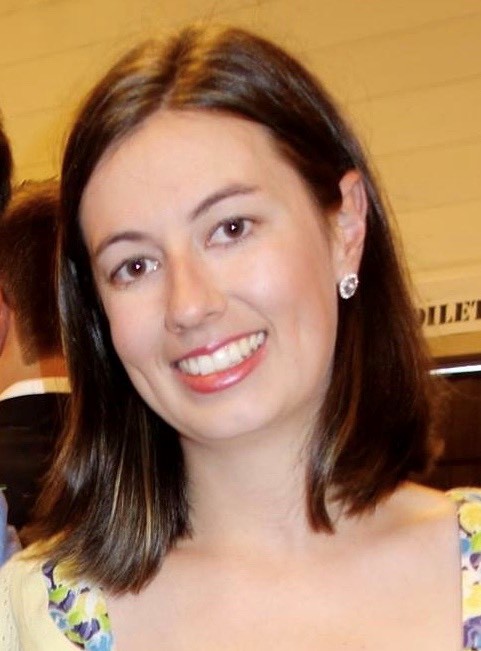Research higher degree program (RHD)
Building a sustainable research environment
The Paediatric Research in Emergency Departments International Collaborative (PREDICT) network, is an NHMRC funded centre for research excellence.
A key objective of PREDICT is to build a sustainable research environment and consequently we are seeking candidates to undertake research higher degrees (PhD, MD/DMedSci and masters degrees) in multicentre acute care studies to develop research capacity in emergency medicine.
If you are a health professional interested in emergency research and wish to undertake a higher degree, please contact the Network Co-ordinator, Cate Wilson using the details below. Potential projects are able to be undertaken in a range of research areas and locations. The details of candidature are open to discussion and stipends will be awarded on a competitive basis.
Application Procedure
Please contact Cate Wilson, Research Network Coordinator at predict@mcri.edu.au with all initial inquiries. Phone: +613 9936 6081.
Once it has been agreed that an application is appropriate:
- To make a formal application, please forward a cover letter that explains:
- your interest in the research area and relevant experience
- previous research experience and long term goals
- the potential location for your studies and associated university of study
- your proposed supervisors (if known)
- whether you wish to complete part/time or full time studies
- Please also attach your Curriculum Vitae which must include:
- Home and work contact details
- Citizenship and residency status
- Academic qualifications
- Post graduate work experience
- Publications & presentations
- Two academic referees
Current scholars
PhD Candidate – Sharon O’Brien
Sharon is a PhD candidate through Curtin University Western Australia, School of Nursing, Midwifery and Paramedicine. Her supervisors are Dr Fenella Gill, Dr Sally Wilson, A/Prof Meredith Borland and Dr Stuart Dalziel.
Sharon is the Research Nurse Coordinator in the Emergency Department at Perth Children’s Hospital and a Study Coordinator for PREDICT.
Her PhD project incorporates:
- The formulation of an evidence based, Australasian clinical practice guideline for infants presenting to, and admitted into hospital, with bronchiolitis. The final guideline structure will consist of a useable clinical interface for bed-side functionality (including flow diagrams and tables of key points for example) with a descriptive summary of the evidence base and evidence tables (NHMRC and GRADE) appendices for each key statement.
- Evidence based algorithm for the use of high flow nasal cannula therapy in management of bronchiolitis in Australia and New Zealand
- Prevalence study on current use of high flow nasal cannula therapy in bronchiolitis in Australasian emergency departments and general paediatric wards. This is a planned secondary analysis of the data collected from a cluster RCT evaluating the effect of targeted, theory informed, knowledge translation strategies on up take of the Australasian Bronchiolitis Guideline.
- Understanding practice: factors that influence bronchiolitis management in Australasian paediatric acute care settings – a qualitative study using the Theoretical Domains Framework

PhD Candidate – Elyssia Bourke
Elyssia is a PhD candidate through the University of Melbourne, Department of Paediatrics. Her supervisors are Prof Franz Babl, A/Prof Simon Craig, Prof Andrew Davidson and A/Prof Jonathan Knott.
Elyssia is an emergency registrar currently completing her final stage of training. She has a special interest in paediatrics and toxicology and is excited to learn more about clinical research through this PhD.
Her PhD project is a mixed methods study looking at a number of facets of paediatric acute severe behavioural disturbance. This PhD comprises part of the Medical Research Future Fund Million Minds Mission grant “The Kids are Not Okay: Emergency Department management of acute mental health crises in children and young people.”
The main components of the PhD will include:
1. A systematic review of pharmacological management of acute severe behavioural disturbance (ASBD) in the paediatric population and a review of current clinical practice guidelines
2. A survey of current Australasian clinical practice related to management of paediatric ASBD in the emergency department
3. A qualitative study examining clinicians experiences managing children with ASBD in the emergency department
4. A qualitative study describing children and parents experiences when they or their child present to the emergency department with ASBD
5. A retrospective observational study of the current management of ASBD
6. A RCT of pharmacological management of ASBD examining outcomes including efficacy and side effect profiles of the chosen medications.

PhD Candidate – Victoria Ramsden
Tory Ramsden is a PhD candidate and recipient of an NHMRC Centre for Research Excellence Paediatric Emergency Medicine Implementation Science Stipend Scholarship which is being administered through Australian Catholic University. Her primary supervisor is Prof Elizabeth McInnes with co-supervisors Professor Franz Babl, Dr Emma Tavender and Prof Peter Wilson.
Tory has experience working as a paediatric intensive care nurse for multiple years and is currently a lecturer at the University of Notre Dame, Australia, School of Nursing Sydney.
Her PhD is a continuation of the PREDICT bronchiolitis knowledge translation study. A cluster randomised controlled trial has shown that tailored, theory informed implementation interventions are effective in improving management of infants with bronchiolitis. Tory’s PhD will undertake a mixed methods study to explore the factors influencing sustainability of these improvements.

PhD Candidate – Charmaine Gray
Charmaine is a PhD candidate through the University of Adelaide Department of Medicine, School of Paediatrics and Reproductive Health. Her supervisors are Dr Jennifer Couper and Dr Simon Craig. Charmaine is an advanced trainee in Emergency medicine at the Women and Children’s Hospital, Adelaide. Her work will contribute to the development of an international consensus on outcomes used in asthma research and will help to understand if demographic or clinical features can be used to predict need for intervention and timing of successful discharge in children with acute asthma.

PhD Candidate – Simon Craig
Simon is a PhD candidate through Monash University. His supervisors are Prof Andis Graudins (Monash University), Prof Franz Babl, Prof Stuart Dalziel, A/Prof Gill Nixon (Monash University) and Prof Colin Powell (Cardiff).
Simon is a Paediatric Emergency Physician at Monash Medical Centre in Melbourne, and has been an active researcher for a number of years before (belatedly) embarking on his PhD studies.
His PhD is attempting to improve the way that clinical trials in acute severe asthma are conducted, with a particular emphasis on development of a globally agreed Core Outcome Set. Major projects include a large retrospective chart review of asthma cases, an Overview of Cochrane Reviews, an analysis of Ambulance Victoria paediatric asthma cases, qualitative interviews with families, and a review of clinical practice guidelines from a number of countries.
Simon’s PhD is progressing slowly, due to a number of distracting non-asthma research interests. He is currently chair of the PREDICT network and the ACEM ED Epidemiology Network, and spends more time than necessary on Twitter (@DrSimonCraig).

– UTAS – IMPACT project
Implementing clinical Pathways for Acute Care in Tasmania (IMPACT) project aims to improve care in Tasmanian EDs by embedding implementation science principles in health care systems and developing strategies to increase uptake of acute clinical pathways and reduce variations in care. This project will focus on using implementation science to understand variations in care and develop targeted implementation strategies to improve ED care outcomes. The PhD topic will be co-developed with the candidate – potential topics include but are not limited to:
– Understanding the implementation of ED clinical pathways across different patient groups
– Co-designing and developing clinical pathways and implementation support strategies, such as audit and feedback
– Evaluating strategies to improve evidence-informed practice
– Developing and evaluating an implementation science laboratory (teams of researchers and clinicians) to drive system-based improvements
We are seeking to develop future research leaders in implementation science with a strong commitment to healthcare quality and safety improvement. This project will suit an applicant with prior clinical training (medicine, nursing or allied health), as well as experience in implementation science, psychology, public health, medicine, health sciences, human factors, design methods, data sciences or a health-related field.
Research Training Program (RTP) scholarship or Tasmania Graduate Research Scholarship (TGRS)provides:
- a living allowance stipend of $31,500 per annum (2023 rate, indexed annually) for 3.5 years
- a relocation allowance of up to $2,000
- a tuition fees offset covering the cost of tuition fees for up to four years (domestic applicants only)
If successful, international applicants will receive a University of Tasmania Fees Offset for up to four years. As part of the application process you may indicate if you do not wish to be considered for scholarship funding.
Other funding opportunities and fees
For further information regarding other scholarships on offer, and the various fees of undertaking a research degree, please visit our Scholarships and fees on research degrees page.
Eligibility
Applicants should review the Higher Degree by Research minimum entry requirements.
Ensure your eligibility for the scholarship round by referring to our Key Dates.
Additional eligibility criteria specific to this project/scholarship:
- Applicants must be able to undertake the project on-campus
Selection Criteria
The project is competitively assessed and awarded. Selection is based on academic merit and suitability to the project as determined by the College.
Additional essential selection criteria specific to this project:
- Medical, nursing or allied health qualification
Additional desirable selection criteria specific to this project:
- Experience in implementation science, psychology, public health, medicine, health sciences, human factors, design methods, data sciences or a health-related

